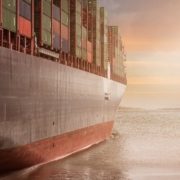Supply Chain Resilience
When we talk about sustainability, it is often with a focus on minimising environmental impact. However, sustainability encompasses everything that is required to keep our businesses operational in the long term. That includes employee skills, customer-centric services and, the focus of this article, supply chain resilience.
Supply Chain Disruptions
No matter how efficient internal processes are, manufacturers can be impacted by supply chain disruptions. Currently, the risk of attacks in the Red Sea is diverting many container ships around the Cape of Good Hope. In many cases, this detour is doubling journey times and voyage costs. These are likely to be recouped by increasing charges for future shipments.
Last year a ship stuck in the Suez Canal was the cause of considerable shipping delays. These are just two examples of political, economic and logistical issues that impact global trade routes. How can these be addressed?
Steps to Supply Chain Resilience
- Identify more than one supplier of essential components. That way, you have a backup if disruption affects your primary source.
- Think local: British-made parts and packaging are less likely to be affected by global issues and delivery times are greatly reduced.
- Use data to plan, prepare and understand the impact of unexpected changes. Use this data to inform a contingency plan to initiate action when informed that supplies are delayed.
Supply Chain Sustainability
This article on the Aylesbury Box Company website highlights environmental points to consider regarding supply chain sustainability: https://abcbox.co.uk/supply-chain-sustainability-2/






